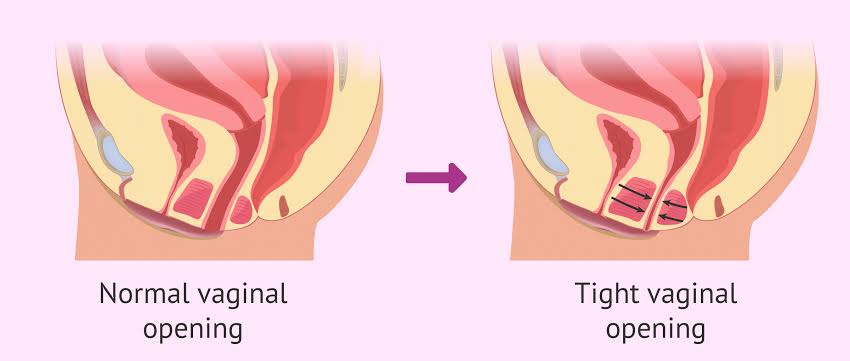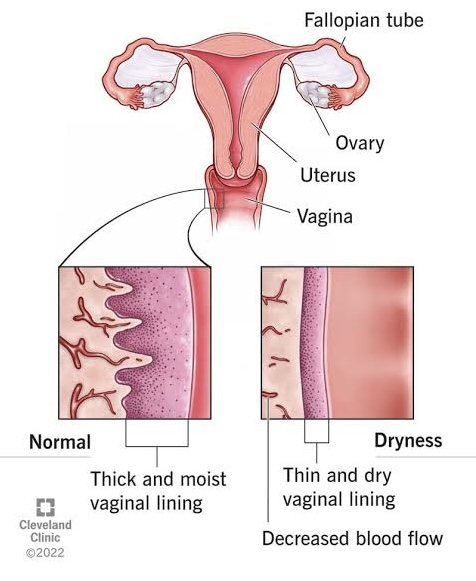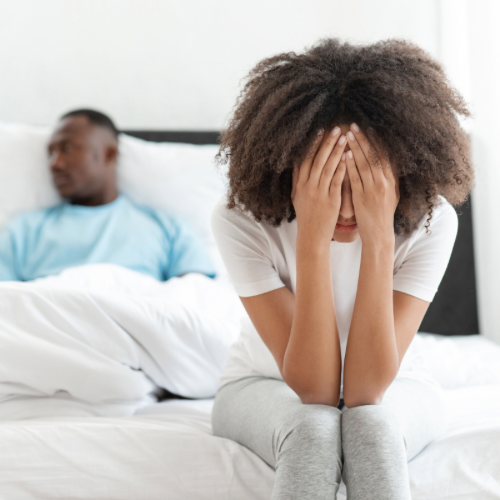Sex is meant to be pleasurable, not painful. Yet for many people, discomfort or pain during intercourse also known as dyspareunia is a common concern. If you’ve ever asked, “Why does sex hurt?”, you’re not alone. There are many physical, emotional, and hormonal reasons why sex can be painful—and the good news is, in most cases, it’s treatable.
The good news? Painful sex is not normal, and it’s not something you have to endure. There’s always a reason behind it, and most of the time, there’s a solution. Let’s break down the common causes of painful sex and how to fix them.
Table of Contents
You’re Not Wet Enough
If sex feels dry or tight, lack of lubrication is likely the problem. This is one of the biggest causes of painful sex, and it can happen for many reasons:

✅ Not enough foreplay
✅ Hormonal changes (like birth control, pregnancy, or menopause)
✅ Anxiety or stress
✅ Medications (like antihistamines or antidepressants)
How to fix it:
💦 Use a water-based lubricant like KY Jelly or Durex Play to reduce friction
💦 Spend more time on foreplay (at least 20 minutes)—your body needs time to produce natural lubrication
💦 Drink lots of water—dehydration can make you dry down there. Also, eat a lot of pineapples, watermelon, oranges and apples.
You’re Too Tense
If you’re stressed, anxious, or scared, your body will tense up—and that includes your vaginal muscles. This makes penetration difficult and painful.

Common reasons for tension during sex:
❌ First-time sex
❌ Bad past sexual experiences
❌ Anxiety about pain or performance
❌ Feeling unsafe or uncomfortable with your partner
How to fix it:
🧘♀️ Take deep breaths and relax your body
💑 Communicate with your partner and don’t rush into penetration
✨ Try gentle massages before sex to help you feel more at ease.

If your body automatically tenses up whenever penetration is attempted, you might have vaginismus—a condition where vaginal muscles involuntarily tighten due to fear or anxiety. A doctor or sex therapist can help with this.
You Have an Infection
Painful sex can also be a sign of an infection, especially if you notice burning, itching, or abnormal discharge.

Common infections that cause painful sex:
🦠 Yeast infection – Causes itching, redness, and thick white discharge
🦠 Bacterial Vaginosis (BV) – Causes fishy-smelling discharge and irritation
🦠 Sexually Transmitted Infections (STIs) – STIs like chlamydia, gonorrhea, and trichomoniasis can cause pain during sex
How to fix it:
💊 Get tested and treated—you may need antibiotics or antifungal medication
🚫 Avoid douching—it can make infections worse
🩺 See a doctor if symptoms persist
You Have Vaginal Dryness from Birth Control or Hormones
Hormonal birth control, pregnancy, breastfeeding, and menopause can cause low estrogen levels, which leads to vaginal dryness and thinning of the vaginal walls (a condition called vaginal atrophy). In this case, you might notice you don’t get wet no matter how long the foreplay goes or how turned on you are.

This can make sex painful, irritating, and uncomfortable.
How to fix it:
💦 Use a water-based lubricant
🍑 Apply vaginal moisturizers like Replens to keep your vaginal tissues hydrated
👩⚕️ If the dryness is severe, talk to your doctor about hormonal treatments
Your Partner Is Too Big (or Too Rough)
Yes, size can sometimes be a problem. If your partner is larger than what your body is used to, or if he’s going too deep, too fast, or too rough, it can lead to pain.

How to fix it:
🛑 Tell him to slow down and let your body adjust
🛏️ Try positions that give you more control, like cowgirl
💦 Use plenty of lube to reduce friction
If deep penetration is the issue, avoid positions like doggy style and opt for missionary with your legs together.
You Have a Medical Condition Like Fibroids or Endometriosis
Sometimes, painful sex is a sign of a medical condition affecting your reproductive organs.

🚨 Fibroids – Noncancerous growths in the uterus that can make deep penetration painful
🚨 Endometriosis – A condition where tissue grows outside the uterus, causing severe pain during sex
🚨 Pelvic Inflammatory Disease (PID) – An infection that can cause pain, especially deep inside
How to fix it:
🩺 See a gynecologist for a proper diagnosis
💊 Depending on the condition, treatment may include pain relievers, hormone therapy, or surgery
You’re Not Turned On Enough
If you’re not mentally or emotionally into it, your body won’t be either. Sex isn’t just about the physical—your mind plays a huge role.
If sex feels like a duty rather than something you actually want, your body won’t respond the way it should.

How to fix it:
💋 Focus on building intimacy and connection with your partner
🔥 Engage in more foreplay, teasing, and sensual activities
🧘♀️ Take time to explore what truly turns you on
When to See a Doctor
If painful sex is persistent and doesn’t improve with the above tips, see a gynecologist. Sex should not hurt, and there could be an underlying condition that needs medical attention.

Seek medical help if:
❌ The pain is severe or getting worse
❌ You have unusual discharge, itching, or burning
❌ Sex hurts even after using lube and trying relaxation techniques
Sex should be pleasurable, not painful. If you’re experiencing discomfort, don’t ignore it or suffer in silence—there’s always a reason behind it, and most of the time, there’s a solution.
Have you ever experienced painful sex? Let’s talk about it in the comments!


Leave a Reply